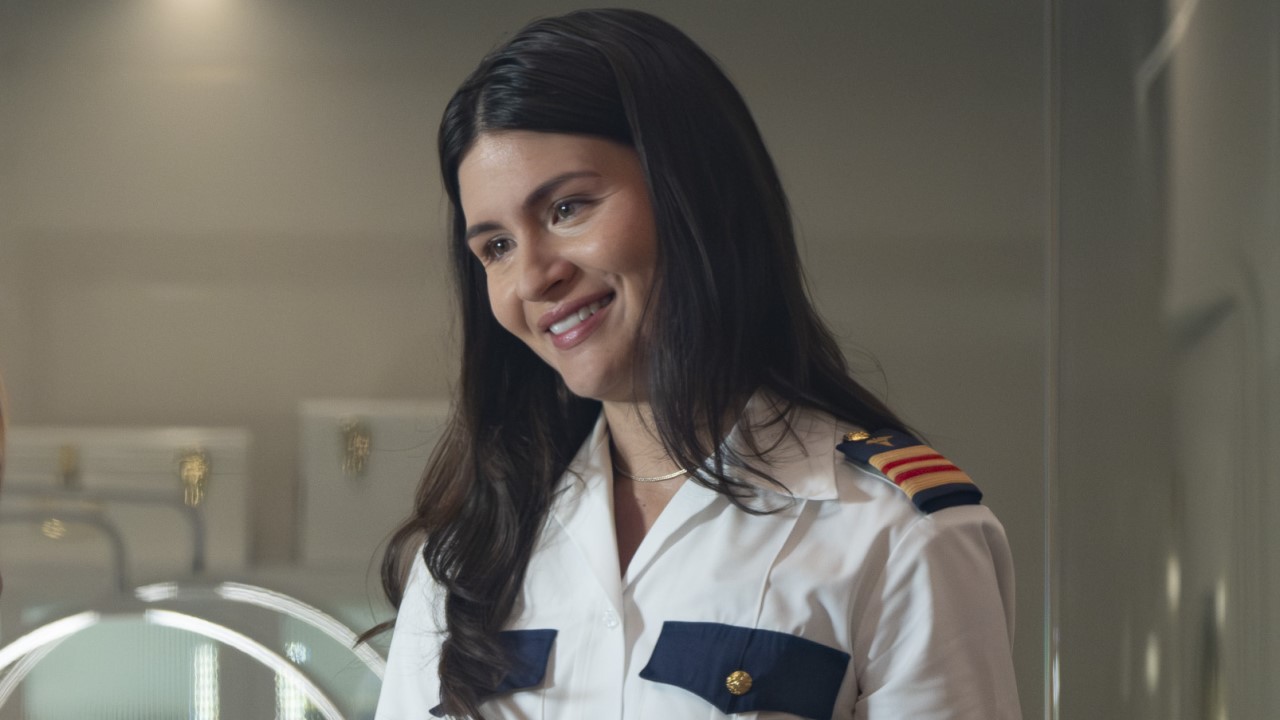For all the marketing and hype around the laboriously titled The Twilight Saga: Breaking Dawn- Part 1, there is one key element that has remained a mystery. We see hints of it as Bella (Kristen Stewart) prepares for her wedding day in the company of her future sisters in law (Ashley Greene, Nikki Reed) and her mother (Sarah Clarke), and then as she walks down the aisle arm in arm with her father (Billy Burke)-- a hem here, a bit of satin there, enough to know that her shoulders are covered. The wedding dress is only fully revealed when Bella steps up to the altar with her waiting groom Edward (Robert Pattinson), and you probably don't even have to imagine the squeals of awe from the audience in that moment.
Breaking Dawn is one of few modern blockbusters that treats distinctly female interests and concerns-- wedding dresses, honeymoons, childbirth-- as cinematic spectacle. As the culmination of a global franchise driven by a primarily female fanbase, Breaking Dawn is to emotions and relationships what movies like Iron Man 2 are to explosions and CGI, indulging in big moments that are nothing but two characters staring into one another's eyes as if it were an epic gun battle. It's not just pandering to its built-in audience either-- for all its insane plot points and utterly illogical characters, Breaking Dawn occasionally carries a surprising emotional tug, particularly in the first half that focuses on the wedding and honeymoon. The wheels were bound to fall off-- there's only so much you can do with Stephenie Meyer's ploddingly written and baffling source material-- but director Bill Condon picks the moments that work and runs with them. It's just too bad there weren't more of them for him to salvage.
The nice thing about this first half of Breaking Dawn-- the second installment of the saga is coming next year-- is that the story is relatively compact. No Volturi over in Italy, no evil vampires, just the same central characters we've come to know, dealing first with Edward and Bella's wedding and then her pregnancy with the half-vampire, half-human baby that grows so quickly it threatens her life. Strangely, Bella winds up isolated from almost everyone amid this-- Edward at first avoids having sex with her for fear of hurting her, then during her pregnancy remains strangely distant, even when she appears to need him most. For his part Jacob (Taylor Lautner), always pushy and overbearing around Bella, lurks around practically biting his tongue to avoid crowing "I told you this was a terrible idea!" There's also some mishegoss with his werewolf brethren and a possible war with the Cullens, but it amounts to so little it's barely worth considering.
The specifics of the story don't make a lick of sense-- they never have in the Twilight saga-- but Condon and screenwriter Melissa Rosenberg do a good job countering that with spikes of humor and a full indulgence of the movie's many huge emotions. Not all of the actors are up to the challenges of straight-up melodrama, but Condon's camera gets remarkably expressive in the moments that are both important and too hot for the PG-13 rating, like Bella and Edward's bed-breaking escapades on their wedding night or the much ballyhooed, and still very bloody, birth scene. Breaking Dawn is still sometimes as stiff and plodding as the previous films, but the vital signs on this one are clearer than on any of the others.
That constant rushing between dull and crazy makes Breaking Dawn feel a little schizophrenic, though, and when the credits show up on a bright red screen accompanied by loud rock music, it seems Condon might have thought his entire movie was as gonzo as that rightly nutty birth scene. By trying so hard to shake things up and occasionally succeeding, Condon may have just proved that there really is no polishing a Twilight movie, which by design will have to be both silly and terribly boring. This one is both, but also better crafted, and with a better appreciation of its rabid audience, than any of the other films since the original Twilight.
Staff Writer at CinemaBlend












